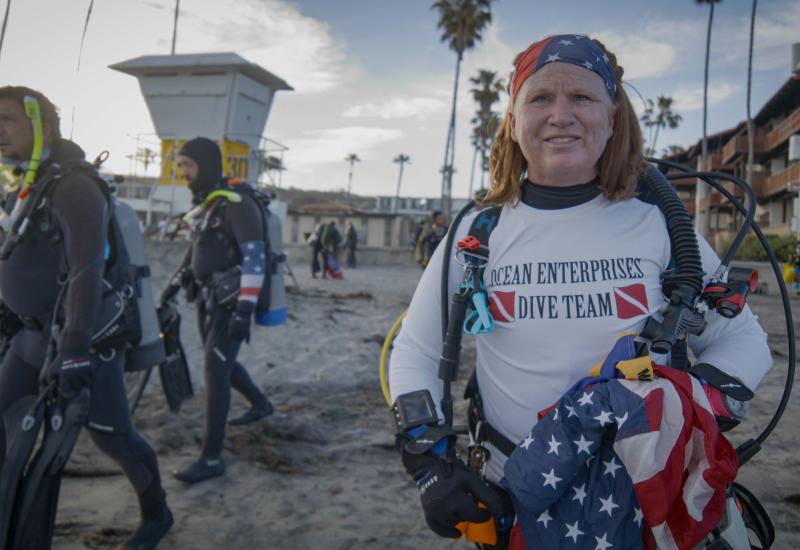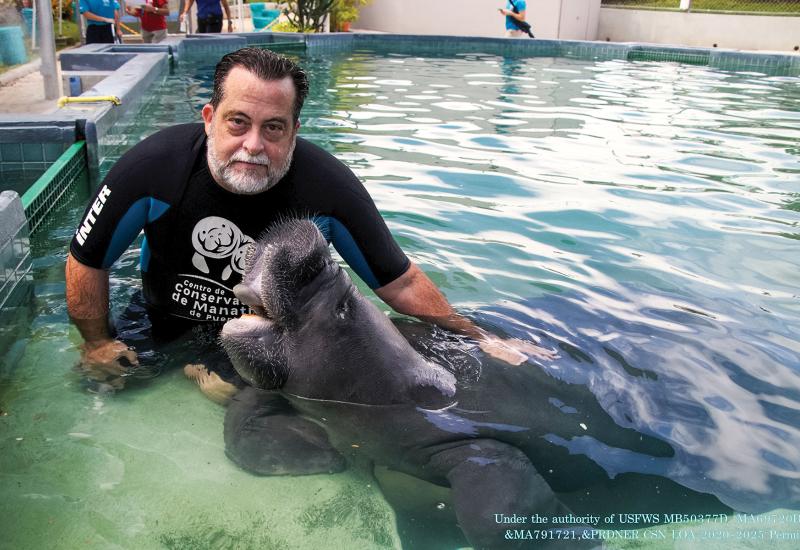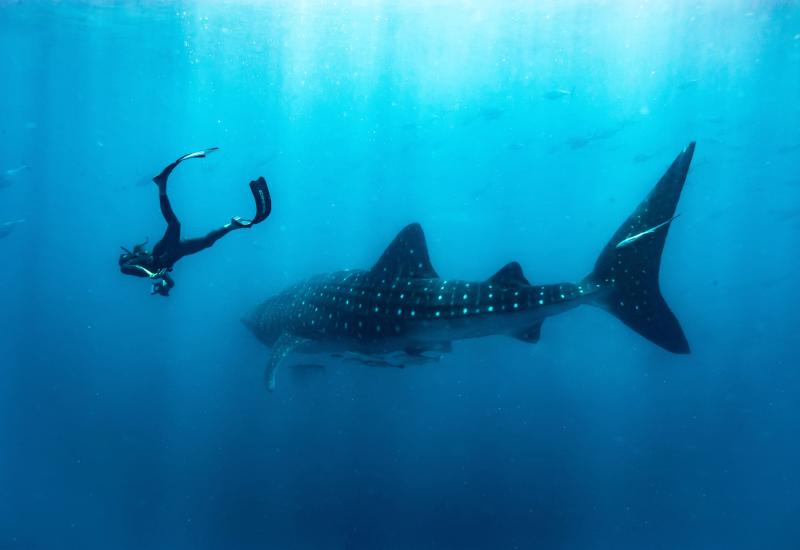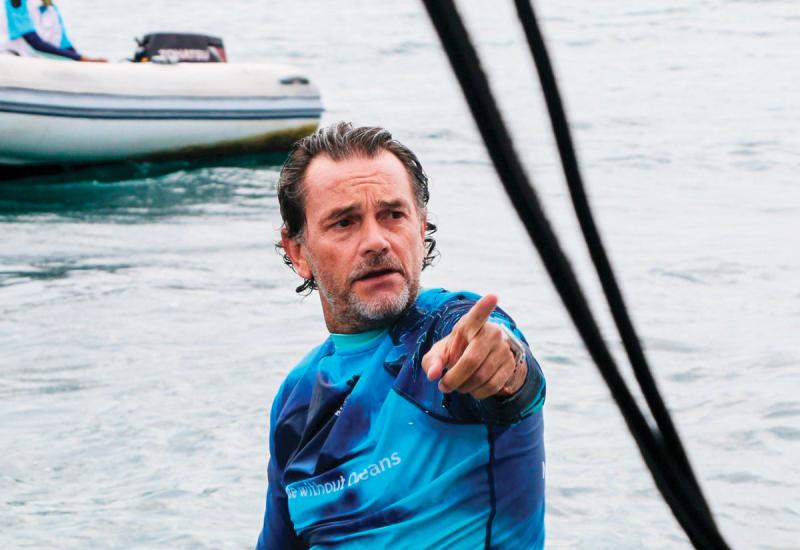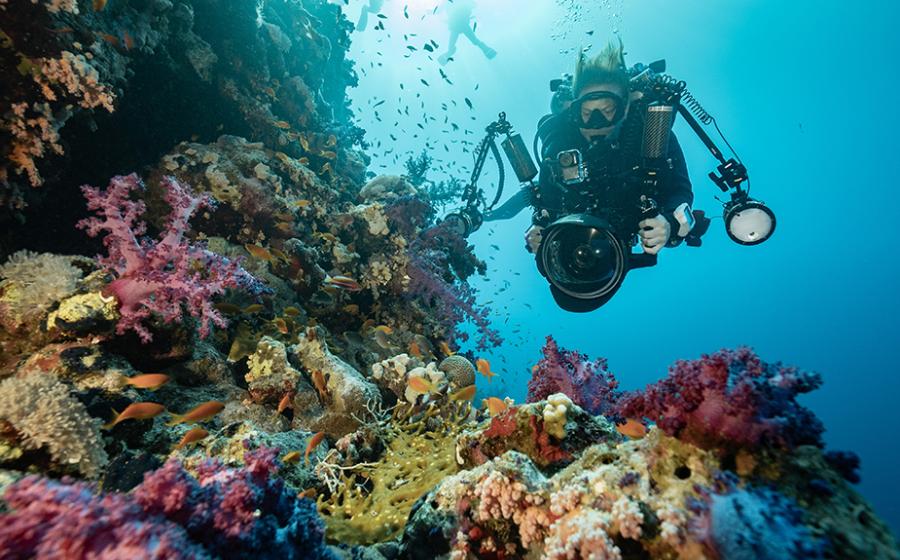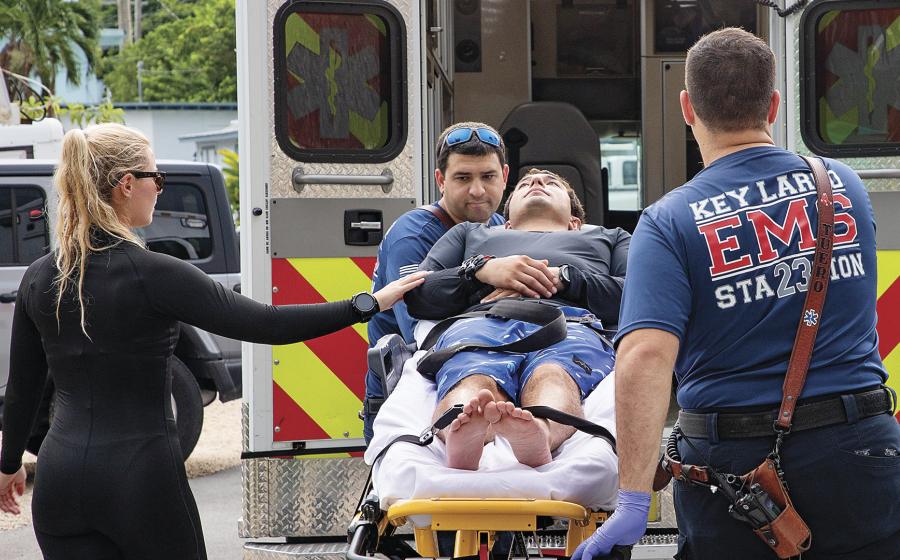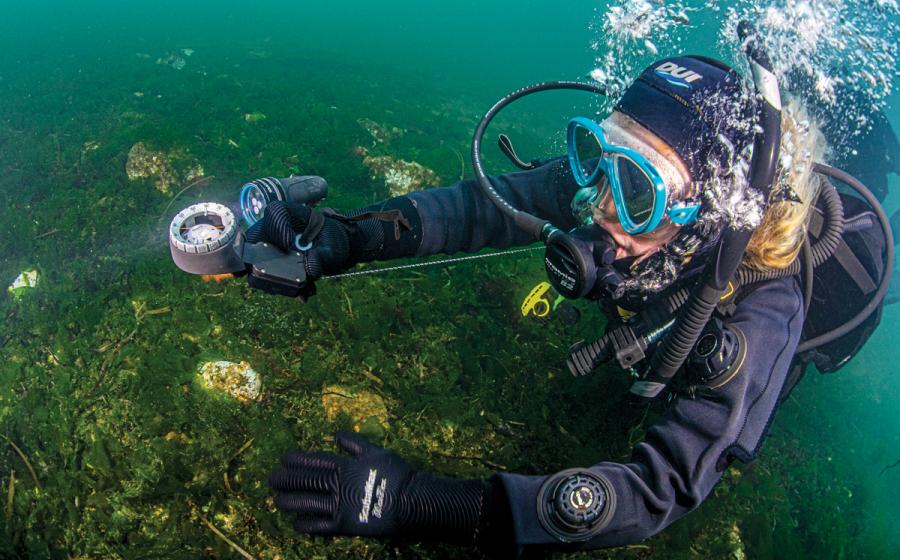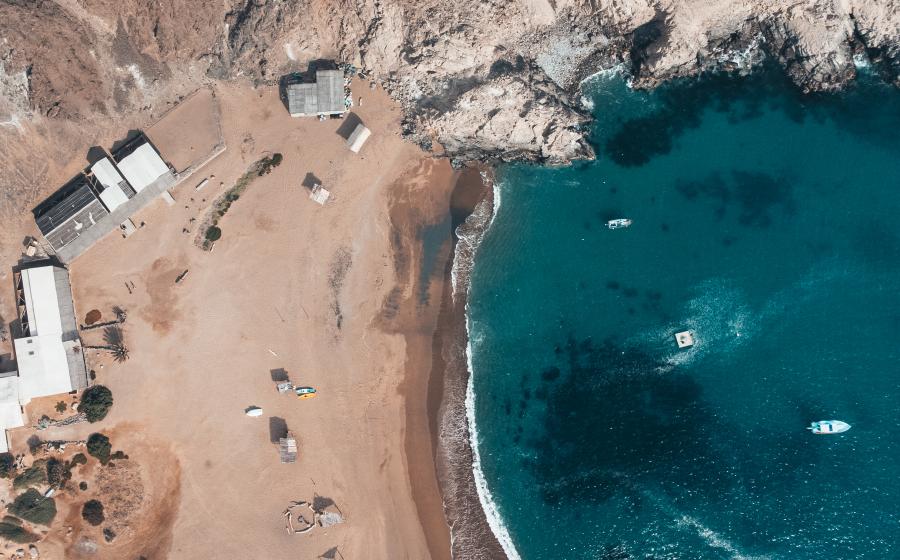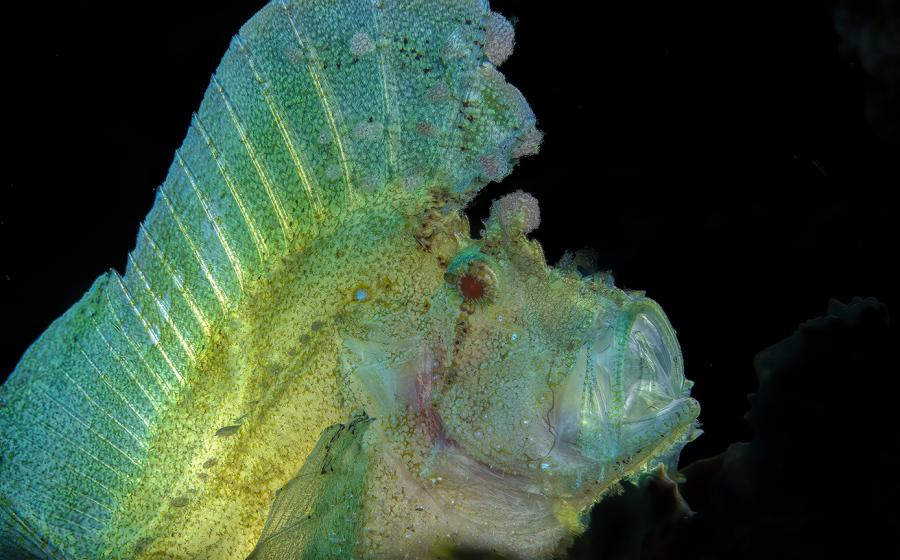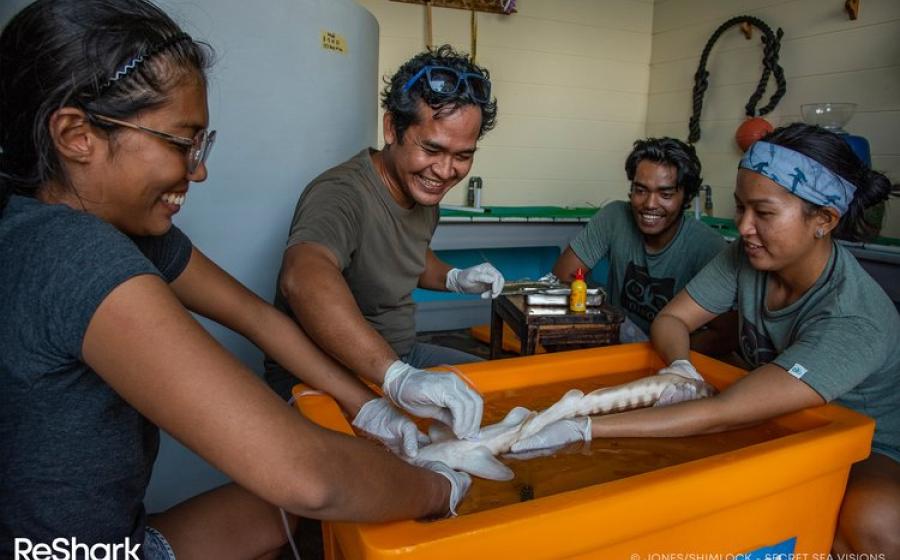Ocean Explorer Liz Taylor Named March Sea Hero
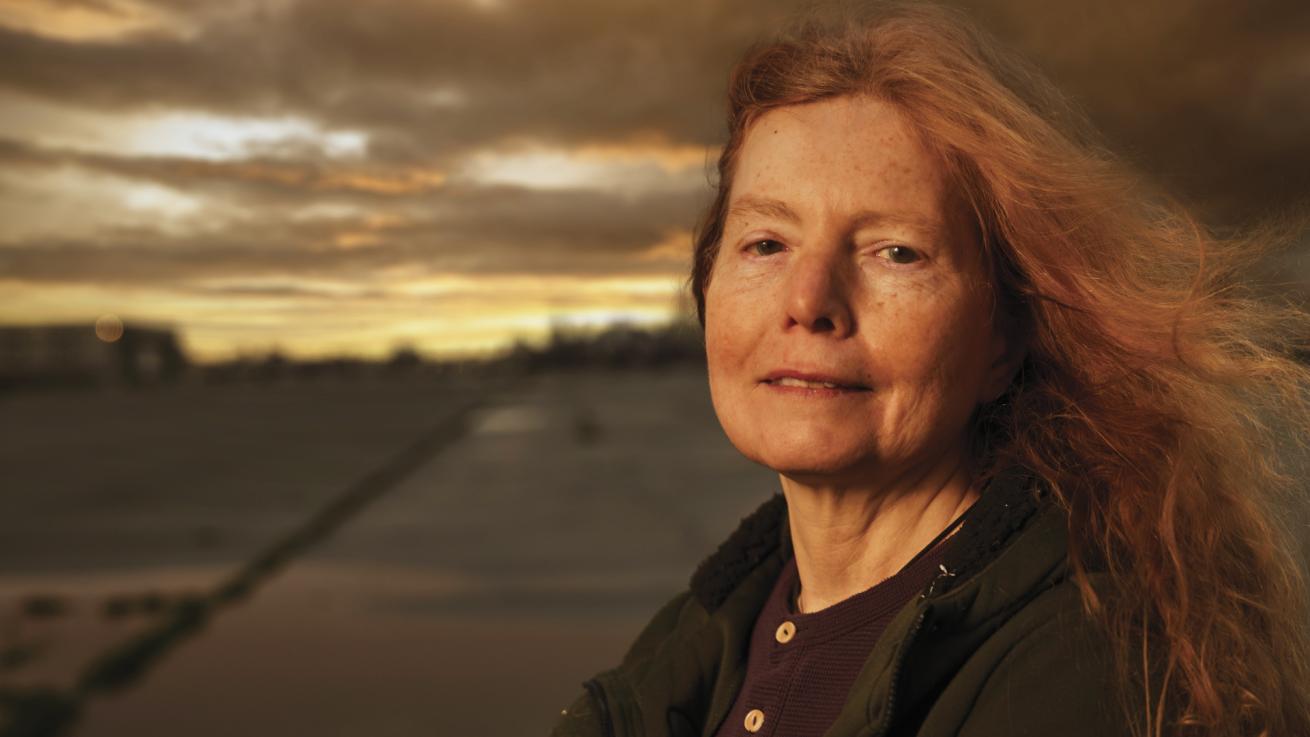
Daniel Tayenaka
YEAR DIVE CERTIFIED: 1973
DIVE CERTIFICATION LEVEL: Rescue Diver
EXPERTISE AREAS: Subsea technology, including human-occupied submersibles, remotely operated vehicles and custom sampling/imaging equipment. Ocean science communication.
INSTAGRAM:
WEBSITE: doermarine.com
Every dive is a science dive for explorer Liz Taylor, president of DOER Marine, co-host of “Dive In With Liz and Sylvia” and an advocate of universal access to ocean science and research.
The daughter of famed marine biologist Sylvia Earle, Taylor acknowledges how fortunate she was to be exposed to the marine world at an early age, but her passions and optimism led to a successful career full of marine discovery.
For her dedication to exploration and spotlighting marine science, Liz Taylor is our March 2024 Sea Hero.
Q: What solidified your desire to pursue a career in ocean exploration?
A: While I first used scuba equipment at around age 8, it was during the Hydrolab program in the Bahamas around five years later that I became dive certified and realized how many career options there were in ocean exploration.
I was exposed to a variety of scientists, technicians, photographers, communicators and engineers who shared a passion for diving but were also frustrated by the limitations of human physiology. The Hydrolab habitat and Johnson Sea Link submersibles were incredibly valuable tools in bridging knowledge gaps. Submersibles allow people the gift of time, well beyond the limits of scuba.
The ability for scientists to follow a hunch—especially around animal behaviors or depth ranges of algae or coral—and similar breakthrough moments in yearslong research projects was a joy to witness.
Q: Why do you share your research when so many other companies keep that information private?
A: While DOER manufactures an array of tools for exploring the ocean and other difficult environments, we are primarily a project-based company that values collaboration over competition. We’ve always operated with a for-benefit mindset, even before B Corporations began setting the standard for social sustainability.
Certain designs have become standalone products, such as our Sea Mantis manipulators, thrusters, hydraulic compensators, vibracores, sediment cameras and similar tools that can be used across different subsea platforms.
However, for our major builds— typically deep-water remotely operated vehicles and human-occupied submersibles—it is all about the long-term sustainability of these systems and making them as future-proof as possible. It is not as lucrative as “planned obsolescence” and proprietary patents, but we strive to bring enduring value via support services and consulting.

Daniel TayenakaTaylor stoops to inspect some equipment.
Q: How do you encourage children to care about new ocean discoveries?
A: Kids are naturally curious, but it often seems that curiosity is quashed versus encouraged. Through our public facing Deep Ocean Explore Store, we work to include public events like coastal cleanups, a bit of birding and shoreline life ID.
We also encourage the use of apps like Litterati and iNaturalist; these help people engage in local litter cleanup and become more connected with nature, respectively. When customers come in with kids, I like to remind them that age 10 is a great time for scuba certification and that snorkeling is great at any age.
And at Farm 527 in Florida, we are working with a local library where kids can check out a backpack with basics like binoculars, a hand lens and a field guide to help stimulate their curiosity.
Every kid should keep a life list, ask the elders in their lives about what is missing now that was common when they were kids and then work together to “re-wild,” or restore and rehabilitate, their community.
Q: What are the greatest challenges in marine conservation today?
A: The greatest challenges have to do with knowledge gaps in decision-making processes and a mindset that the ocean is there with resources free for the taking, not recognized as the 70 percent of the planet that makes Earth hospitable for life.
I like to remind people that we can’t treat the ocean like a supermarket and a sewer at the same time and expect no problems. Fish only seem to have a value once they are dead; what about their value alive?
Related Reading: Oceanographer Antonio Mignucci Named January Sea Hero
Each Sea Hero featured in Scuba Diving receives a Seiko SRPD43 watch valued at $525. For our December issue, judges select a Sea Hero of the Year, who receives a $5,000 cash award from Seiko to further their work. Nominate a sea hero at scubadiving.com/seaheroes.

